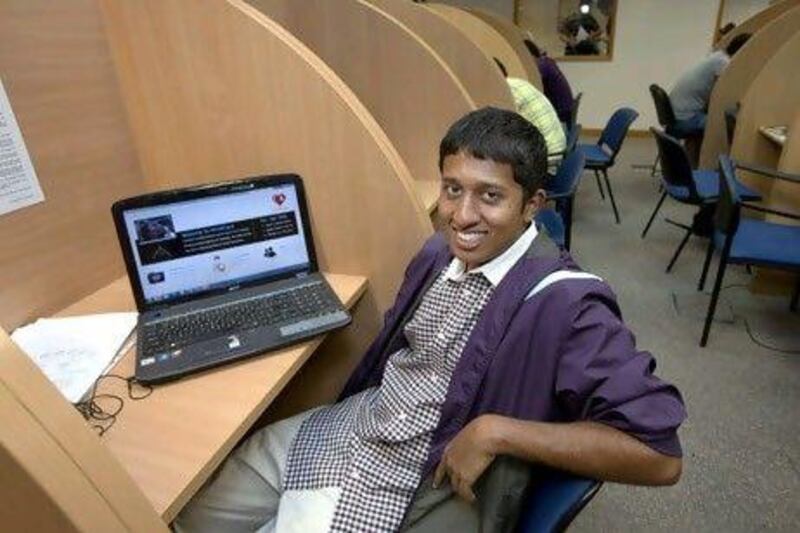Securing a slot as a finalist in a global student technology competition is by no means easy. But the real challenge for innovators such as Saud al Zakwani is whether they can translate their ideas into success in the real world.
Mr al Zakwani and a team including four classmates, who are all computer science students from the Sultan Qaboos University in Oman, won first place in the regional finals of the Imagine Cup Gulf last week.
The annual competition, which drew projects from more than 325,000 individuals from around the world last year, asks university students to use technology in order to help solve some of the social challenges outlined in the UN Millennium Development Goals.
The winning project from the Gulf, Help Me Educate Others, is a computer software design that acts as a media hub for charitable donors who may want to finance educational support for students. Information about how much money the student needs for each class or semester is presented, while records of their attendance and report cards are openly available to donors who may want to track a student's progress.
But while the software that Mr al Zakwani and his team developed is now operational online but the link has yet to be made available to the public because it still needs to be connected to a payment gateway for donors.
The team hopes to launch "very soon", says Mr al Zakwani. And if everything goes according to plan, the students will depend on this site for employment once they graduate.
"We'll leave everything and go towards making this work," he says.
Companies such as Microsoft, which initiated the competition, are trying to help students such as Mr al Zakwani and his teammates along the way.
This year the computer giant provided participants with free software, plus coaching on how to present an idea or business plan. Students then stood in front of a judging panel made up of senior members from enterprise and governmental organisations, who allowed just 15 minutes for each presentation.
"Going forward, we continue to connect with these students in case they want to evolve these ideas, create a small business and want support from us," says Samer Abu-Ltaif, the regional general manger for Microsoft Gulf. "We are committed to provide free software, databases and tools until their revenue is US$1 million (Dh3.67m)."
Mr Abu-Ltaif says Microsoft Gulf is in discussions to support a number of ideas that got off the ground through the competition. One computer science student who competed from Bahrain over five years ago found outside investors and venture capitalists to back his concept, and he now operates a firm with more than 35 employees, says Mr Abu-Ltaif. "Some of these ideas are very viable," he adds.
Yet some winners from the past never saw their projects move beyond the competition phase. Others have tried winning the contest numerous times while searching for the right idea that might succeed in the marketplace.
This was the third year that Shawn Frank, 20, submitted a project. The computer science student from the University of Wollongong in Dubai ranked third overall in the Gulf and will join Mr al Zakwani's team at the international finals in New York in July.
This year, Mr Frank demonstrated "momEcare", a mobile phone application that delivers important health information, via voice and video tutorials, to pregnant women in remote and undeveloped areas. His goal is to get the UN to sign on and distribute his product to reduce maternal deaths, although first he says he needs to get medical experts and hospitals on board to provide feedback to mothers-to-be.
All that stands in his way are final exams. "I just want to do college first then look at the business of putting it [my idea] into the marketplace," says Mr Frank. "It's a whole long process."






